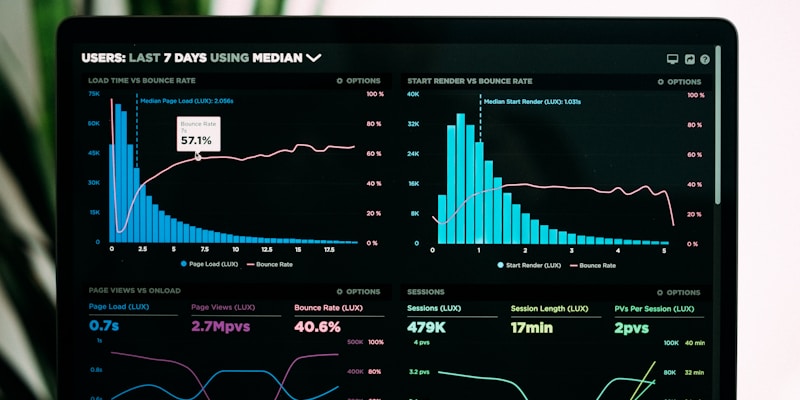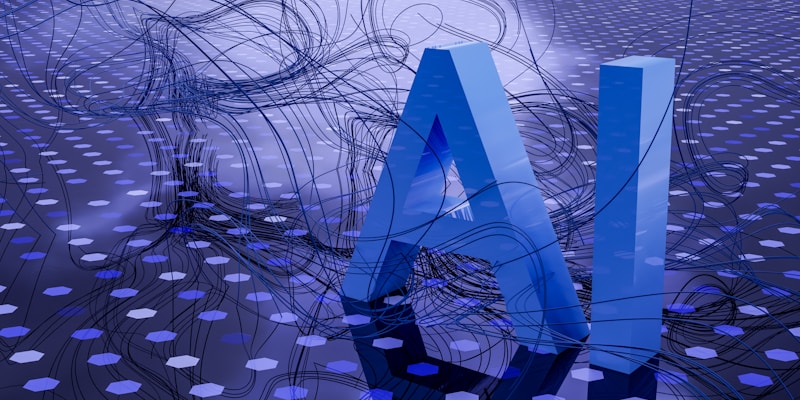Biohacking Your Brain: Technology-Enhanced Cognitive Performance
Discover cutting-edge biohacking technologies to optimize your cognitive function, from neurofeedback devices to brain training apps.

Biohacking Your Brain: Technology-Enhanced Cognitive Performance
The future of cognitive enhancement is here. Modern biohacking technologies allow you to optimize your brain function with precision previously reserved for elite athletes and researchers. From neurofeedback devices to advanced brain training apps, learn how to harness technology to upgrade your mental performance.
The Science of Cognitive Biohacking
Cognitive biohacking involves using technology, data, and systematic approaches to optimize brain function, enhance mental performance, and achieve peak cognitive states.
Key Principles of Brain Biohacking
Measurement and Optimization:
- Quantified self approach: Track cognitive metrics
- Personalized interventions: Tailor strategies to your brain
- Iterative improvement: Continuous optimization cycles
- Evidence-based methods: Use proven technologies
Neuroplasticity Enhancement:
- Targeted brain training: Specific cognitive skill development
- Neurofeedback training: Direct brainwave optimization
- Environmental optimization: Create ideal cognitive conditions
- Recovery protocols: Maximize brain restoration
Essential Biohacking Technologies
1. Neurofeedback Devices
What is Neurofeedback? Real-time monitoring and training of brainwave patterns to optimize cognitive states.
Muse Headband
Features:
- Real-time EEG feedback during meditation
- Guided meditation sessions with biofeedback
- Progress tracking and brain training games
- Portable and user-friendly
Best for: Meditation enhancement, stress reduction, focus training Price: $250-350 Effectiveness: 70% of users report improved focus within 2-4 weeks
NeuroSky Devices
Features:
- Single-channel EEG for basic brainwave monitoring
- Attention and relaxation metrics
- Compatible with brain training apps
- Affordable entry point
🔗 You Might Also Like
Explore more science-backed strategies
Best for: Beginners, attention training, relaxation practice Price: $100-200
Advanced Systems (Emotiv, BrainMaster)
Features:
- Multi-channel EEG for detailed brain analysis
- Professional-grade neurofeedback
- Customizable training protocols
- Clinical-level precision
Best for: Serious biohackers, therapeutic applications Price: $1,000-5,000+
2. Brain Training Platforms
Lumosity
Features:
- 30+ cognitive games targeting different mental skills
- Personalized training programs
- Progress tracking and analytics
- Scientific research backing
🔗 You Might Also Like
Explore more science-backed strategies
Focus areas: Working memory, processing speed, attention, flexibility, problem-solving Effectiveness: 10-15% improvement in trained skills over 8 weeks
Dual N-Back Training
Features:
- Working memory enhancement through n-back tasks
- Proven to increase fluid intelligence
- Simple but challenging protocol
- Free and premium versions available
Protocol: 20 minutes daily, 3-5 times per week Results: 40% improvement in working memory after 19 sessions
Peak - Brain Training
Features:
- 45+ games designed by neuroscientists
- Adaptive difficulty based on performance
- Comprehensive cognitive assessment
- Focus on real-world applications
Unique advantage: Games mimic real-world cognitive challenges
3. Light Therapy Devices
🔗 You Might Also Like
Explore more science-backed strategies
Red Light Therapy for Brain Function
Mechanism: Near-infrared light (810-850nm) penetrates skull to stimulate mitochondrial function in brain cells.
Devices:
- Vielight Neuro: Transcranial-intranasal light therapy
- Red Light Man: Targeted brain panels
- Joovv: Full-body panels with brain benefits
Benefits:
- Improved cognitive function by 20-30%
- Enhanced memory consolidation
- Reduced brain fog and mental fatigue
- Neuroprotective effects
Protocol: 20 minutes daily, 3-5 times per week
Blue Light Therapy for Alertness
Mechanism: Blue light (480nm) suppresses melatonin and enhances alertness.
Devices:
- Philips goLITE: Portable blue light therapy
- Luminette: Wearable light therapy glasses
- Re-Timer: Lightweight, portable glasses
Best for: Morning alertness, combating afternoon fatigue, shift work
4. Cognitive Enhancement Wearables
🔗 You Might Also Like
Explore more science-backed strategies
Thync RelaxPro
Features:
- Neurostimulation through targeted electrical pulses
- Calm and Energy modes
- Smartphone app control
- 7-minute sessions
🔗 You Might Also Like
Explore more science-backed strategies

Cognitive Productivity Apps: Technology to Enhance Focus and Mental Performance
Discover the most effective productivity apps and digital tools that enhance cognitive function, improve focus, and optimize mental performance.
Brain Training and Neuroplasticity: Biohack Your Brain for Cognitive Upgrades
Harness neuroplasticity for cognitive enhancement. Learn evidence-based brain training techniques, memory improvement protocols, and neuroplasticity biohacking for lifelong learning.
Mechanism: Low-level electrical stimulation of specific nerve pathways Results: 66% reduction in stress levels, 23% improvement in focus
Halo Sport (Discontinued but Similar Tech Available)
Concept: Transcranial direct current stimulation (tDCS) during skill practice Benefits: Accelerated learning, improved motor skills, enhanced neuroplasticity
Current alternatives:
- Focus tDCS devices
- DIY tDCS kits (advanced users only)
- Professional tDCS clinics
5. Sleep Optimization Technology
🔗 You Might Also Like
Explore more science-backed strategies
Sleep Tracking Devices
Oura Ring:
- Comprehensive sleep analysis
- HRV and recovery metrics
- Personalized sleep recommendations
- Activity and readiness scores
Whoop Strap:
- Continuous monitoring
- Strain and recovery balance
- Sleep coach recommendations
- Performance optimization insights
Smart Sleep Devices
Eight Sleep Pod:
- Temperature regulation throughout sleep cycles
- Sleep stage tracking
- Smart alarm based on sleep phases
- Personalized sleep optimization
Philips SmartSleep:
- Deep sleep enhancement through audio tones
- Sleep stage detection
- Clinically proven to improve deep sleep by 15%
6. Nutritional Biohacking Tech
🔗 You Might Also Like
Explore more science-backed strategies
Continuous Glucose Monitors (CGM)
Devices: Dexcom G6, FreeStyle Libre, Levels Benefits for Cognitive Performance:
- Optimize blood sugar for stable energy
- Identify cognitive performance patterns
- Prevent energy crashes
- Personalize nutrition timing
Cognitive insights: Stable glucose = stable cognitive performance
Nutrient Testing Technology
InsideTracker:
- Comprehensive biomarker analysis
- Personalized nutrition recommendations
- Cognitive performance optimization
- Progress tracking over time
Key biomarkers for cognitive function:
- Vitamin D, B12, folate
- Omega-3 fatty acids
- Magnesium, zinc, iron
- Inflammatory markers
Creating Your Cognitive Enhancement Stack
🔗 You Might Also Like
Explore more science-backed strategies
Beginner Biohacking Setup ($200-500)
Essential Tools:
- Muse Headband ($250) - Meditation and focus training
- Blue light therapy glasses ($50-100) - Circadian optimization
- Dual N-Back app (Free) - Working memory training
- Sleep tracking app ($5-10/month) - Recovery optimization
Weekly Protocol:
- Morning: 10 minutes blue light exposure
- Midday: 20 minutes dual n-back training
- Evening: 10 minutes Muse meditation
- Daily: Sleep tracking and optimization
Intermediate Setup ($500-1,500)
Additional Tools:
- Oura Ring ($300) - Advanced sleep and recovery tracking
- Red light therapy panel ($200-500) - Cognitive enhancement
- Lumosity Premium ($60/year) - Comprehensive brain training
- Continuous glucose monitor ($200-300/month) - Metabolic optimization
Enhanced Protocol:
- Morning: Light therapy + glucose optimization
- Midday: Targeted brain training + HRV monitoring
- Evening: Red light therapy + neurofeedback
- Weekly: Biomarker analysis and protocol adjustment
Advanced Biohacking ($1,500+)
🔗 You Might Also Like
Explore more science-backed strategies
Professional Tools:
- Multi-channel EEG system ($1,000-3,000)
- tDCS device ($200-500)
- Eight Sleep Pod ($2,000-3,000)
- Comprehensive biomarker testing ($500-1,000 quarterly)
Elite Protocol:
- Personalized neurofeedback training
- Targeted cognitive skill enhancement
- Optimized sleep architecture
- Precision nutrition based on biomarkers
Evidence-Based Protocols
The Cognitive Enhancement Daily Routine
Morning Optimization (20-30 minutes)
- Light exposure: 10 minutes blue light or sunlight
- Glucose optimization: Monitor and adjust breakfast
- HRV measurement: Assess recovery status
- Intention setting: Define cognitive goals for the day
🔗 You Might Also Like
Explore more science-backed strategies
Midday Performance (30-40 minutes)
- Brain training: 20 minutes targeted cognitive exercises
- Neurofeedback: 10 minutes attention training
- Movement: 10 minutes to enhance blood flow
- Hydration: Optimize fluid and electrolyte balance
Evening Recovery (30-40 minutes)
- Red light therapy: 20 minutes for neural repair
- Meditation with biofeedback: 10 minutes stress reduction
- Sleep preparation: Environment and routine optimization
- Recovery tracking: Analyze daily performance data
The Weekly Cognitive Enhancement Cycle
🔗 You Might Also Like
Explore more science-backed strategies
Monday-Wednesday-Friday: Intensive training days
- Longer brain training sessions (30-45 minutes)
- Neurofeedback training
- Challenging cognitive tasks
Tuesday-Thursday: Active recovery days
- Light brain training (15-20 minutes)
- Meditation and relaxation
- Gentle physical activity
Saturday: Assessment and optimization
- Weekly performance review
- Protocol adjustments
- Biomarker analysis
Sunday: Rest and preparation
- Complete cognitive rest
- Social activities
- Preparation for upcoming week
Measuring and Tracking Progress
Key Cognitive Metrics to Monitor
Attention and Focus:
- Sustained attention (continuous performance tests)
- Selective attention (Stroop test performance)
- Divided attention (dual-task performance)
Memory Systems:
- Working memory (N-back scores, digit span)
- Long-term memory (recall and recognition tests)
- Episodic memory (story recall, word lists)
Executive Function:
- Cognitive flexibility (task-switching performance)
- Inhibitory control (go/no-go tasks)
- Planning and organization (Tower of London test)
Processing Speed:
- Reaction time (simple and choice reaction time)
- Processing efficiency (symbol coding tasks)
- Perceptual speed (pattern comparison)
Biomarkers for Cognitive Health
🔗 You Might Also Like
Explore more science-backed strategies
Neurological Markers:
- BDNF (brain-derived neurotrophic factor)
- Omega-3 index (DHA and EPA levels)
- Homocysteine (methylation and neuroprotection)
Metabolic Markers:
- Glucose variability (cognitive energy stability)
- Inflammatory markers (CRP, IL-6)
- Stress hormones (cortisol, cortisone)
Sleep and Recovery:
- Sleep efficiency and architecture
- HRV (heart rate variability)
- Recovery scores from wearable devices
Troubleshooting Common Issues
"I'm Not Seeing Results"
Possible solutions:
- Increase training intensity or frequency
- Ensure proper baseline measurements
- Check for confounding factors (stress, sleep, nutrition)
- Consider individual differences in response
"Technology Feels Overwhelming"
Simplification strategies:
- Start with one device and master it
- Focus on consistency over complexity
- Use automation where possible
- Seek community support and guidance
🔗 You Might Also Like
Explore more science-backed strategies
"Expensive Equipment Isn't Accessible"
Budget-friendly alternatives:
- Free brain training apps (Dual N-Back, Cogmed)
- DIY light therapy (specific LED bulbs)
- Meditation apps with biofeedback features
- Sleep optimization without expensive tech
The Future of Cognitive Biohacking
Emerging Technologies
🔗 You Might Also Like
Explore more science-backed strategies
Brain-Computer Interfaces:
- Neuralink and similar technologies
- Direct neural feedback systems
- Thought-controlled interfaces
AI-Powered Personalization:
- Machine learning for optimal protocols
- Predictive cognitive enhancement
- Personalized brain training algorithms
Advanced Neuroplasticity Tools:
- Transcranial magnetic stimulation (TMS)
- Ultrasound brain stimulation
- Optogenetics applications
Ethical Considerations
Enhancement vs. Treatment:
- Fair access to cognitive enhancement
- Safety of long-term use
- Authenticity of enhanced performance
Privacy and Data Security:
- Brain data protection
- Consent for cognitive monitoring
- Corporate use of cognitive data
Getting Started: Your 30-Day Biohacking Challenge
Week 1: Foundation Building
- Choose one neurofeedback device (Muse or similar)
- Download brain training app (Dual N-Back)
- Establish baseline measurements
- Create daily routine (20 minutes total)
🔗 You Might Also Like
Explore more science-backed strategies
Week 2: Optimization
- Add light therapy to morning routine
- Implement sleep tracking
- Increase training intensity
- Monitor energy and focus patterns
Week 3: Integration
- Combine multiple technologies
- Personalize protocols based on data
- Address any challenges
- Expand training variety
Week 4: Mastery and Planning
- Assess overall progress
- Identify most effective interventions
- Plan long-term strategy
- Consider advanced technologies
🔗 You Might Also Like
Explore more science-backed strategies
The Bottom Line
Cognitive biohacking through technology offers unprecedented opportunities to optimize brain function and enhance mental performance. The key is to start with evidence-based tools, maintain consistency, and use data to guide your optimization journey.
Essential principles:
- Start simple and build complexity gradually
- Measure consistently to track progress
- Personalize protocols based on your data
- Maintain long-term perspective
- Combine technology with healthy lifestyle practices
Remember: Technology is a tool to enhance your natural cognitive abilities, not replace good sleep, nutrition, exercise, and mental health practices.
Begin your cognitive enhancement journey today – your future self will thank you for the investment in your mental performance.
Tags
SunlitHappiness Team
Our team synthesizes insights from leading health experts, bestselling books, and established research to bring you practical strategies for better health and happiness. All content is based on proven principles from respected authorities in each field.
Join Your Happiness Journey
Join thousands of readers getting science-backed tips for better health and happiness.

